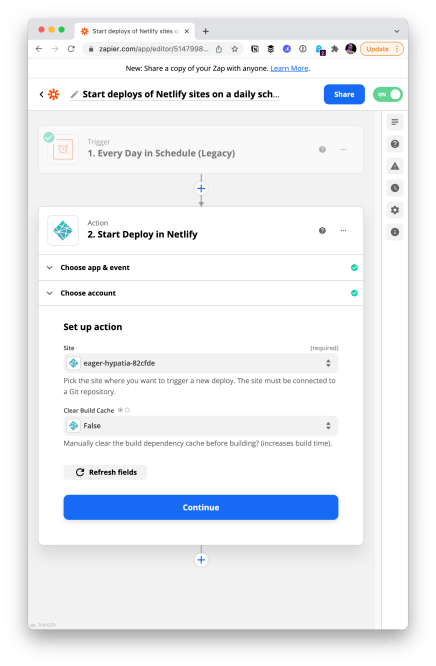
Business financing is a complex subject, given the variety of corporate loans in today’s market. A corporate loan is classified into various types based on the varying requirements of entrepreneurs and businesses. Some business needs like capital expenditure, managing daily operations, investments, etc., require financing through loans.
For understanding the varying types of business loans and their application process, continue reading this article.
Also Read: How To Choose An Equipment Finance Company In India?
Types of Corporate Loans in India
Entrepreneurs in India can select a corp loan from the ones listed below, depending on their needs.
- Working Capital Loan: If any business requires cash for continuing their daily operations, they can get a working capital loan for generating cash flow during off-seasons, paying rent or payroll cost management, and payment of debts. These loans can also be taken for continuing the flow of cash during seasons of high demand. Businesses do not take these loans for financing long-term requirements or investments.
- Start-up Loan: As the name suggests, a start-up loan is taken by new businesses for managing their operations and investments. As the company is in the initial stage of growth, the applicants for these loans might not have sufficient credit history to show. This is why the credit history of an individual is considered for processing such loan applications. Apart from this, the company’s current turnover is also considered for deciding the loan amount and interest rates.
- Invoice Financing: Also known as invoice factoring, invoice financing is mainly taken by small businesses for bridging the time gap between receiving client payments and raising invoices. In such cases, entrepreneurs can borrow a maximum of 80% of the amount on the invoice. The repayment tenure and duration vary depending on the financial institution from where the entrepreneur has borrowed the money.
- Term Loan: A term loan is one of the most popular types of business financing. Depending on the financial requirement of the applicant, the loan can be secured or unsecured, i.e., it may or may not require collateral. The tenure ranges from one to five years for unsecured business term loans, and for unsecured business loans, 15 to 20 years. Generally, these loans are taken for maintaining fixed assets as the applicant receives a lump sum amount after the application process is complete.
- Loan Against Property: Businesses that need more than Rs. 50 lakhs worth of loan for meeting their requirements should avail a loan against property. These loans are offered to Small and Medium Enterprises; hence it is also known as Loan Against Property for SMEs. The property against which the loan is being taken can be commercial or residential real estate. Most financial institutes offer a maximum of 70% of the property’s market value as a loan. The borrower must ensure that the property is free from legal complications.
- Equipment Financing: Purchasing, repairing, or upgrading machinery in many industries is a financially complex process as it involves a substantial amount of cash. Every manufacturing unit requires one or more expensive machines for the production of goods. Through equipment financing, the equipment in consideration is taken as collateral for the loan, and financing is released for its purchase. If required, the financial institution can also take an additional asset for security. In many cases, the interest rates on equipment financing are lower than that of many other loan types.
- Business Loans for Women: Generally, many Non-Banking Financial Companies (NBFC) and banks have unique schemes for women entrepreneurs considering getting a loan for women. These schemes encourage women to establish their businesses with flexible loan amounts and have a faster loan process and offer discounts on the traditional rates of interest. The Government of India has also taken many initiatives for motivating women to start lucrative businesses.
- Merchant Cash Advance: Just as the name suggests, a merchant cash advance is generally taken by merchants who deal with daily sales of products or services. A bank or NBFC renders a part of the merchant’s daily debit card sales for meeting business expenses. The borrower repays this advance through a part of the daily credit received for a particular day. The borrower needs to ensure the availability of cash flow for business management. As the repayment amount is decided based on the daily sales made by the merchant, the pressure of repaying the principal amount with high-interest rates is taken off their shoulders.
- Overdraft: When your business or personal account balance drops to zero, the overdraft facility allows you to avail a certain extension of credit to meet your immediate requirements. Banks provide this facility for savings and current account holders. When money is debited from such accounts, it is said to have been “overdrawn.” Depending on the account owner, the bank prescribes a limit for overdraft, and the owner must pay an interest rate over the amount drawn in this form.
Also Read: Need Money Fast? 4 Options For Small Business Owners
Corporate Line of Credit (LOC) is another type of business loan which is revolving in nature. It is used to finance short-term requirements like inventory purchase and other requirements. It works similar to a credit card for businesses.
How To Get Corporate Business Loans?
Any business can apply for secured or unsecured corporate loans if they meet the eligibility conditions as specified by a bank or NBFC. For secured loans, the applicant must have a business or personal asset (as demanded) ready to attach against their loan as collateral. In case of non-payment, the lender will claim this asset to make up for the unpaid amount.
To meet immediate requirements of cash flow, you can also get unsecured corporate business loans that come with a shorter tenure than a secured loan. Check the following sections for understanding the eligibility conditions and required documents for corporate loans.
Also Read: Common Mistakes To Avoid When Starting A Small Business
Eligibility Conditions for Corporate Loans in India
A corp loan or corporate loan is only offered to those business entities that meet the following eligibility conditions:
- Age: The age of the applicant must range from 21 years to 65 years.
- Annual Income: An applicant’s minimum annual income requirement changes from lender to lender. Many lenders allow applicants with less than Rs. 10 lakhs annual income to get a corporate loan. However, the general minimum income for meeting the eligibility requirements is Rs. 1 crore.
- Banking Stability: Before approving an application for a business loan, the lenders require the bank statements of the previous six months to check the banking stability of the applicant. In this manner, they also get to check the repayment history of the company or individual applying for the loan.
- Business Stability: For existing businesses, lenders verify the stability of the business to track its growth rate. Based on these parameters, they reject or approve the loan applications.
- ITR: Every applicant must have filed ITR for the past years to get a business loan. Generally, lenders consider the ITR of the recent 2 years to determine the applicant’s monthly income and repayment capacity.
Documents Required for Corporate Loan in India
An applicant must submit the following documents along with their application for corporate business loans. Depending on your lender, one or two documents in this list could be added for getting a better insight into your business before processing the corporate loans.
- Proof of Address: Any government-recognized proof of address like Driving Licence, Passport, Election Commission Card, Aadhaar card, etc.
- Proof of Identity: Any government-recognized proof of identity like Passport, Election Commission Card, Aadhaar Card, etc.
- Proof of Continuity: Any proof of continuity like Establishment Certificate, ITR, Sales Tax Certificate, or Trade Licence.
- Bank Statement: Previous six months statement of your current or savings account.
- Total computed income, latest ITR, and certified balance sheet of the previous two years.
- Others: Certified copy of Memorandum of Association, Board Resolution, declaration of sole proprietorship or deed of partnership, and certified copy of Articles of Association.
Loan Repayment In India
The tenure of a corp loan repayment varies depending on the financial institution from where you’ve taken the loan. The basic repayment tenure varies from one to two years. However, the repayment tenure of term loans is generally longer, depending on your lender. Follow these basic tips to pay off your debts in time responsibly:
- Borrow only the amount that you know you can repay.
- Opt for lenders who offer flexible tenors. Increase your EMIs depending on the cash influx in your company.
- Leverage the autopay facility to pay your EMIs on time.
- Refinance your loan if required.
Also Read: What Are The Best Accounting Practices For Small Businesses?
Conclusion
Taking a corporate business loan has become an easy process due to the online submission and processing of applications. Ensure the authenticity of the documents before submitting them, and cross-check if you have submitted all the required documents. This will fast-forward your application for a corporate loan or a corporate line of credit without any delay.





